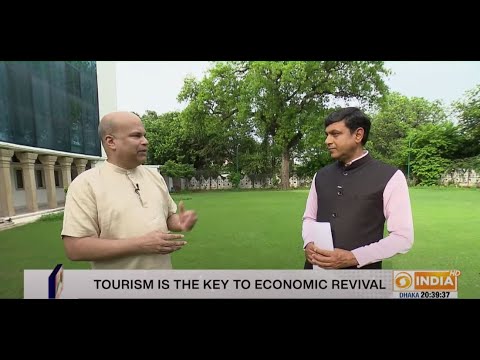Union Minister Ashwini Vaishnaw on Wednesday introduced the Promotion and Regulation of Online Gaming Bill, 2025 in Lok Sabha. The bill seeks to promote e-sports and online social games while imposing a complete ban on harmful online money gaming services, advertisements, and related financial transactions.
The legislation prohibits all forms of online betting and gambling, including fantasy sports, poker, rummy, lotteries, and other money-based games, irrespective of whether they are based on skill, chance, or a combination of both.
The government said that the move aims to protect India’s youth from predatory real-money gaming applications that lure players with misleading promises of monetary returns, leading to addiction, financial losses, and in extreme cases, even suicides.
The bill empowers the central government to establish or designate a national authority to regulate the sector. This body will oversee the categorisation and registration of online games, determine whether a game qualifies as a money game, and address complaints and grievances. It also proposes stringent penalties, including imprisonment of up to three years and fines of up to ₹1 crore for offering or facilitating online money gaming. Advertising such games could lead to imprisonment of up to two years and fines of up to ₹50 lakh, while repeat offenders may face harsher penalties of three to five years’ imprisonment and fines of up to ₹2 crore. Offences under key provisions will be cognizable and non-bailable, with enforcement officers authorised to investigate, search, seize property, and in certain cases, arrest without warrant.
The government highlighted the broader risks associated with online money gaming platforms, noting their frequent misuse for financial fraud, money laundering, terror financing, and activities threatening national security. Officials stressed that the bill aligns the country’s digital regulations with existing laws that restrict betting and gambling in the physical domain, such as the Bharatiya Nyaya Sanhita, 2023, and various state legislations.
At the same time, the bill recognises e-sports as a legitimate form of competitive sport in India. The Ministry of Youth Affairs and Sports will frame guidelines and standards for e-sports events, establish training academies and research centres, and launch incentive schemes and awareness programmes. It will also integrate e-sports into broader sports policies in coordination with state governments and federations.
Under the bill, esports are defined as organised, multiplayer competitions governed by rules, where outcomes depend solely on player skill, including physical dexterity, mental agility, and strategy.
For online social games, the Ministry of Electronics and IT and the Ministry of Information and Broadcasting will support safe, age-appropriate educational and cultural gaming content, promote digital literacy, and facilitate platforms that encourage skill development and social engagement.
Industry seeks Amit Shah’s intervention against blanket ban
Meanwhile, leading industry bodies – the All India Gaming Federation (AIGF), E-Gaming Federation (EGF) and the Federation of India Fantasy Sports (FIFS) – have written to Union Home Minister Amit Shah, urging him to intervene against any move for a blanket ban on real-money games, including those based on skill.
In their joint representation, the associations argued that such a ban would severely impact India’s ₹2 lakh crore online skill-gaming industry, which they described as integral to the Prime Minister Narendra Modi’s vision of a $1 trillion digital economy.
The sector currently generates ₹31,000 crore in annual revenue, contributes over ₹20,000 crore in taxes, and supports more than 2 lakh jobs. It has attracted ₹25,000 crore in FDI up to mid-2022 and continues to grow at a 20% CAGR, with its valuation expected to double by 2028. The number of online gamers in India has risen from 36 crore in 2020 to over 50 crore in 2024.
The gaming bodies said to Shah, “On behalf of the millions of young entrepreneurs, developers, and professionals working in India’s sunrise digital skill gaming sector, we write to you with the deepest respect and gravest concern regarding the news reports about the draft bill that seeks to ban all real money games, including those based on skill. Such a blanket prohibition would strike a death knell for this legitimate, job-creating industry, and would cause serious harm to Indian users and citizens.”
The gaming bodies urged the government to pursue progressive regulation instead of prohibition, stating that India has the opportunity to become a global leader in gaming, technology and digital entertainment.
“We earnestly request your urgent intervention and seek an opportunity to present our case, along with solutions that ensure responsible gaming while protecting users. We firmly believe that progressive regulation and not prohibition is the way forward for the legitimate Indian industry. With your guidance, India can set a global example by building a safe, transparent, and thriving digital gaming ecosystem,” the joint statement said.
Some industry voices have welcomed the bill’s recognition of e-sports but cautioned that clarity in definitions is crucial. Akshat Rathee, co-founder and managing director of NODWIN Gaming, said, “The government’s intent to recognise and promote esports is an encouraging step towards building a globally competitive ecosystem. However, precise definitions distinguishing esports, online gaming, online social gaming, and online money gaming are essential to avoid confusion among regulators, players, investors, and organisers.”
India’s e-sports scene has been steadily gaining international recognition. S8UL, the only Indian organisation currently competing across 13 titles, was recently selected among 40 of the world’s top teams for the Club Partner Program of the $70 million Esports World Cup. Animesh Agarwal, co-founder and CEO of S8UL Esports, described the Bill as a “historic turning point,” adding that “by clearly separating competitive gaming from betting, it safeguards integrity while opening doors for structured growth.”
Esports has already entered the Indian mainstream, making its debut at the Khelo India Youth Games 2025. Several states, including Bihar, Maharashtra, Tamil Nadu, and Nagaland, have also promoted grassroots esports through championships and structured programmes, signalling wider acceptance of competitive gaming as a legitimate sport.
“The Promotion and Regulation of Online Gaming Bill, 2025 strikes a balanced path—encouraging innovation and youth engagement through safe online gaming, while firmly prohibiting harmful money games,” the government said.
(With agency inputs)
















